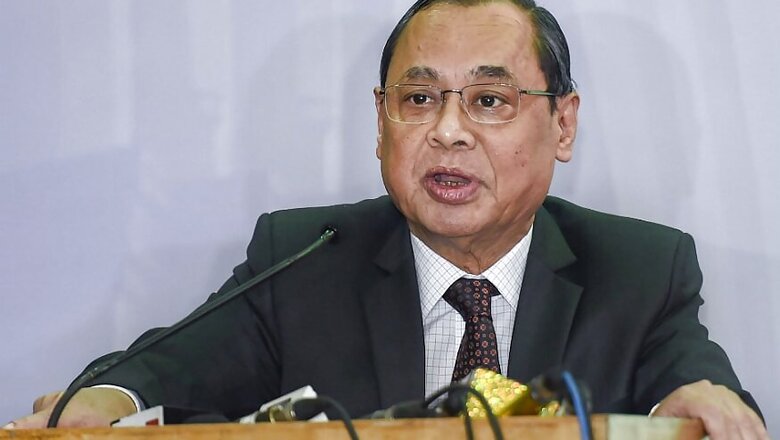
views
New Delhi: Chief Justice of India Ranjan Gogoi has opined that countries that spend adequately on judicial infrastructure are the ones with more stable governments.
Speaking at the 14th SCO conference of chief justices in the Russian city of Sochi, Gogoi suggested that data would go on to corroborate the significance of investing in judicial infrastructure.
“It would not be surprising if the data would reflect that nations which support and invest heavily in developing a strong judicial infrastructure, with sufficient financial resources and powers, would be the nations with more stable governments and administrations," he said.
Gogoi added that financial autonomy and power hold the key to strengthening the independence of judiciary even as, more often than not, control on revenue and expenditure vests with the executive that may tend to use this as a tool of arm-twisting.
The judge clarified that he was not talking only about parking of finances at the hands of the judiciary but was emphasising on complete autonomy in financial matters in the interest of the greater good of financial independence.
Addressing leaders from the judiciary across the globe, Gogoi said that the institution needs to work on securing its independence in financial matters as against low budgetary support despite the fact that the “judiciary globally acts as buffer and pressure valves, standing between the state agencies and restive populace, absorbing all the heat and dust thrown up by the cycle or governance or the lack thereof”.
On the issue of judicial appointments, Gogoi spoke about the collegium system and said that except for some outliers, the executive in India has historically shown deference to the judiciary in appointments of judges.
Gogoi further said that when the executive and legislative wings are swept away from their duties and goals under waves of populism, “it is for the judiciary to rise and stand up to the populist forces and protect the constitutional ethos from being desecrated by the populists”.
















Comments
0 comment